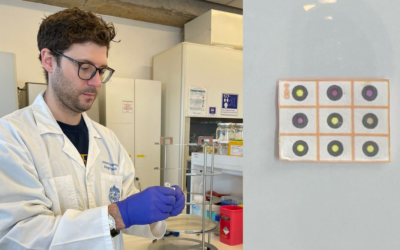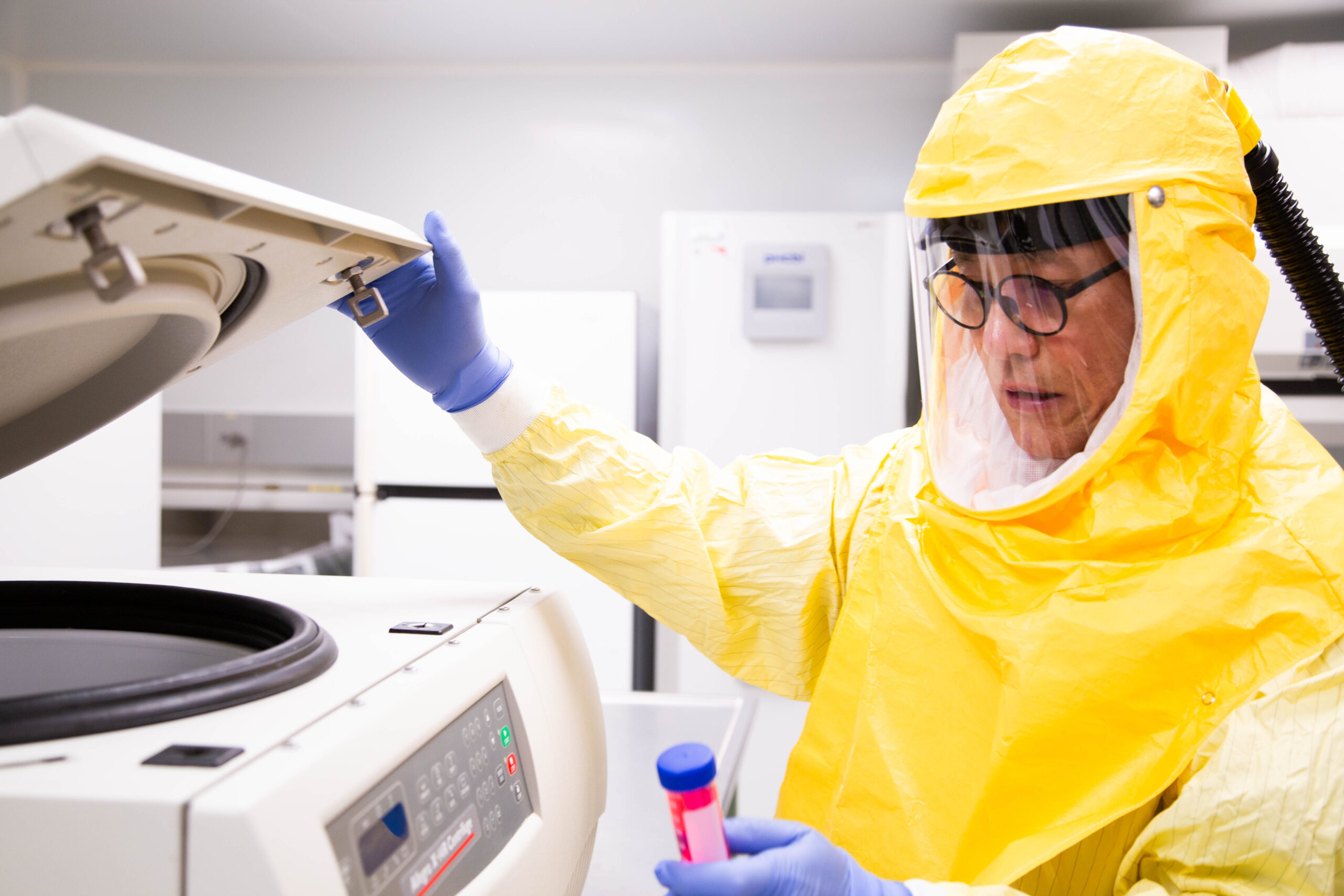News & Events
Events
News
Scientists discover new lipid nanoparticle that shows muscle-specific mRNA delivery, reduces off-target effects
From left to right: Institute of Biomedical Engineering PhD trainee Jingan Chen, Leslie Dan Faculty of Pharmacy assistant professor Bowen Li, Li lab postdoctoral researcher Yue Xu December 11, 2023 By Kate Richards A team of researchers based at the University of...
Second annual symposium on antimicrobial resistance highlights opportunities and challenges to tackling AMR
December 7, 2023 By Betty Zou The Emerging and Pandemic Infections Consortium, along with partners bioMérieux Canada, the AMR – One Health Consortium and the Association of Medical Microbiology and Infectious Disease Canada (AMMI Canada), recently co-hosted the second...
World AIDS Day: How EPIC researchers are advancing new treatment strategies and supporting older adults with HIV
Subha Dahal (left) and Alice Zhabokritsky December 1, 2023 By Betty Zou Over four decades after the start of the AIDS epidemic, researchers in the Emerging and Pandemic Infections Consortium are reshaping approaches to target the human immunodeficiency virus (HIV)...
Toronto infectious disease community tackles antimicrobial resistance from multiple angles
(Photo by Roberto Sorin on Unsplash) November 23, 2023 By Betty Zou Earlier this year, the federal government released its Pan-Canadian Action Plan on Antimicrobial Resistance, which details federal, provincial and territorial commitments to address antimicrobial...
How worried should I be about drug-resistant fungi? An expert Q&A with Leah Cowen and Jennie Johnstone
Leah Cowen (left) and Jennie Johnstone November 20, 2023 By Betty Zou We may not need to worry about the zombie fungus in the hit HBO television series The Last of Us but there is another real-life fungal pathogen that we should be paying close attention to. Candida...
Experts gather at EPIC symposium to discuss how to bolster support for infectious disease research and pandemic preparedness
A panel of experts called for sustained funding investments, stronger ready-to-use infrastructure and improved communications to help Canada break the cycle of panic and neglect around infectious diseases. These themes emerged from a discussion at the first annual Emerging and Pandemic Infections Consortium symposium held in mid-October. The panelists included Leah Cowen, vice-president, research and innovation, and strategic initiatives at the University of Toronto, Marisa Creatore, executive director of the Centre for Research on Pandemic Preparedness and Health Emergencies at the Canadian Institutes of Health Research, and U of T President Emeritus David Naylor.
Harnessing synthetic biology to create low-cost diagnostics and improve infectious disease surveillance
EPIC Doctoral Award recipient Justin Vigar is using synthetic biology to develop rapid, low-cost diagnostic tools to combat infectious diseases. He and his lab mates are creating a customizable, paper-based platform that uses pocket-sized slips of paper with genetic circuits embedded onto them. The circuitry is built by freeze drying proteins and other molecular components, which function as amplifiers and sensors, directly onto the paper.
What you need to know about the three fall vaccines, according to U of T experts
As cold and flu season approaches, Canadians are facing respiratory syncytial virus (RSV), an increase in COVID-19 activity, and influenza — but also have new options to protect their health. To learn more, we spoke with Shelly Bolotin, director of the Centre for Vaccine Preventable Diseases, Shaun Morris, a pediatric infectious disease physician at the Hospital for Sick Children, and Allison McGeer, an infectious disease specialist at Toronto’s Sinai Health.
U of T researchers unveil new preclinical insights into why males are more likely to have severe COVID-19
A new study from a team of EPIC members has uncovered the biological reasons underlying sex differences in COVID-19 outcomes and is offering a promising new strategy to prevent illness. Early on during the pandemic, clinicians quickly noticed that males were more likely than females to be hospitalized or admitted to the ICU or to die from COVID-19 despite having similar infection rates. This pattern held true across all age groups and in countries around the world. The research, conducted in mice and published in the journal iScience, points to the ACE2 protein as a key contributor to differences in COVID-19 outcomes between males and females.










